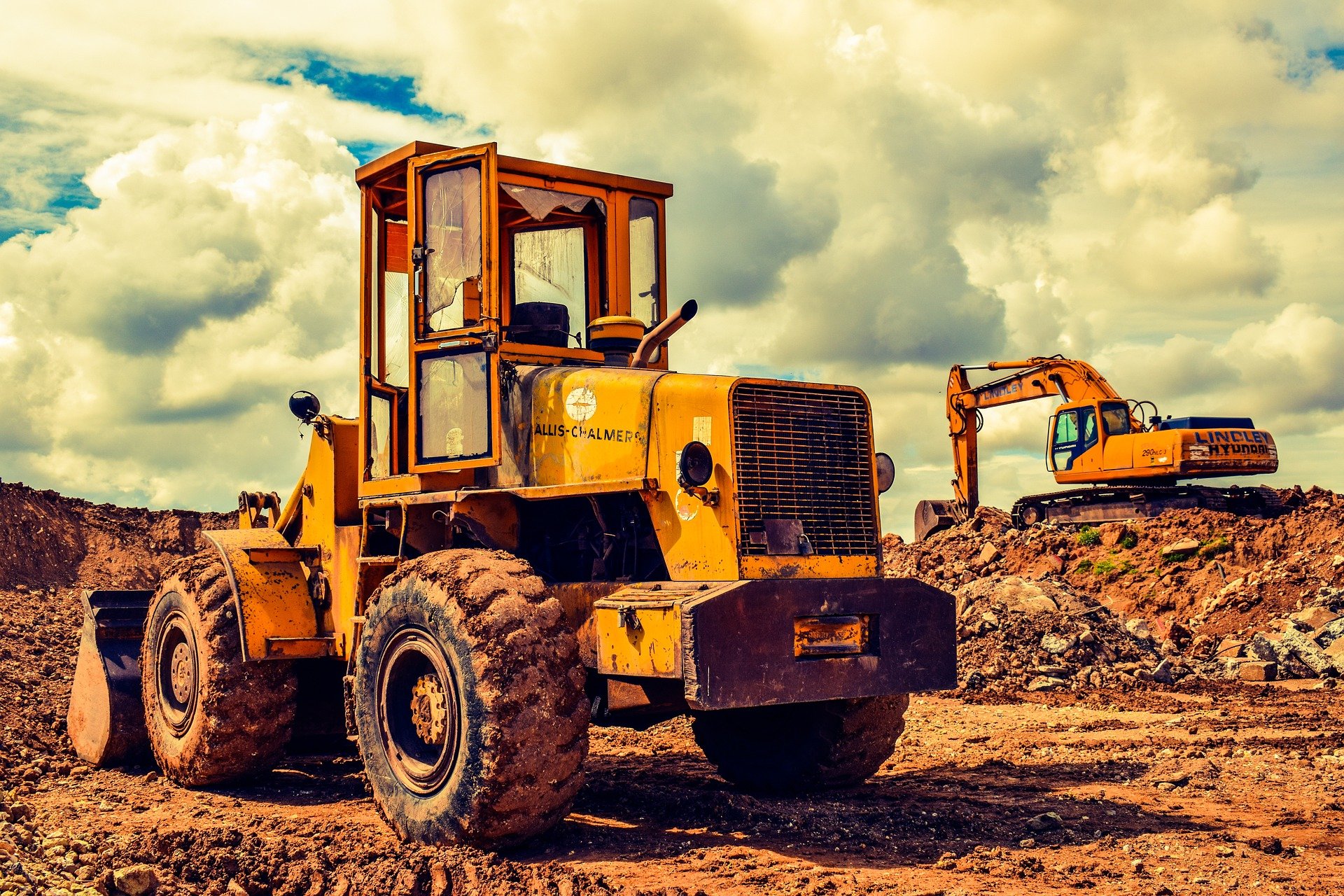As fresh university graduates seek to start careers and raise families, one of their chief goals is to own their homes. Unfortunately, that has gotten a lot more difficult in almost every major economy. “We are witnessing sections of society being shut out of parts of … cities because they can no longer afford apartments,” Berlin Mayor Micheal Mueller told Bloomberg Linea in September.
At least 10 major economies have seen housing prices and rent skyrocket in 2021, increasing by double-digit percentages. That includes the United States, where the real estate market’s collapse led to the 2008 global financial crisis. Experts say soaring prices are due to near-zero interest rates, fewer existing homes for sale, slower construction due to lockdowns, and shifts in family spending priorities. “While that’s a boon for existing homeowners [who can now take higher mortgages], prospective buyers are finding it ever harder,” said Muller.
High prices for homes and rent are happening in the shadow of China’s second-largest state-owned developer, Evergrande, missing two payments on its international bonds. “So there is undoubtedly some nervousness in the real estate investment market,” Andrew Moore, Schroders Capital’s head of real estate in the Asia Pacific region, said in a September blog. “Evergrande’s default is still playing out in real-time.”
Those trends are worrying. In a January blog for the Joint Center for Housing Studies at Harvard University, Don Layton, former CEO of the U.S. mortgage giant Freddie Mac, said those price hikes were unprecedented and unexpected. “The expectation is that house prices will decline, not increase, and certainly not increase at such extraordinarily high rates,” he stressed. “What we’re witnessing is a major event that should not be shrugged off or ignored.”
A changed business
As with other established industries, the pandemic is defining the real estate sector’s future. “What’s changed are the factors you must consider before committing to an investment,” said Evan Cohen, director of property management at Heritage Equity, in an August blog post.
Perhaps the most significant factor is the vaccination rate. It will determine how fast developers can return to their pre-pandemic construction norms free from lockdown constraints and potential buyers’ willingness to spend on homes. Cohen noted other factors, including the increasing viability of working remotely, the rise in online retail at the expense of brick-and-mortar shopping, and the exodus from city centers.
PricewaterhouseCooper’s (PwC) 2022 Emerging Trends in Real Estate report added that the market’s recovery would depend on property type, size and location. That would ultimately result in “vastly different outcomes” for the real estate sector as a whole. “Property markets and sectors now diverge in ways significantly different than in the last recovery,” after the 2008 global financial crisis, said the PwC report.
Accordingly, developers and governments seeking real estate FDI should rethink their strategies. “All of these factors make this a confusing time for real estate investors,” wrote Cohen. “Real estate assets … and investment opportunities that would be at one point … a sure win are now in question.”
Ongoing resilience
Despite those new sector drivers, real estate, in general, has weathered the pandemic relatively well, unlike automobiles and logistics, for example. “It is astonishing that the property market ended up looking much like it did before the pandemic,” noted PwC’s report. It “inspired greater confidence in the industry’s collective capacity to adapt to changing market conditions and future unknown risks.”
In its August overview of the real estate market, Jones Lang LaSalle noted the value of transactions during Q2 2021 was up 103% compared to Q2 2020 and nearly identical to the same period in 2019. “The scale and scope of the real estate capital markets’ recovery continued to broaden. Activity was particularly robust in the market with sectoral diversity and opportunities of scale.”
Active Capital, a Netherlands and Germany-based SME investment company noted that cross-border investment in real estate is also rising. Next year, the cash will likely come from American, Canadian, British and German investment managers, institutions, and private equity investors. “The results from this year’s [Active Capital] report are a welcome sign of the continuing recovery in the global capital markets and a resurgence of global-border investment in real estate,” Neil Brookes, head of global capital markets at Knight Frank, a real estate consultancy, told Property Funds World in September.
That reflected on investor confidence in the sector, which reached new highs compared to the past five years. On PwC’s Startup Founder & Investor Confidence Index, investors recorded 9.2 out of 10 by the end of 2020, which dropped to 8.8 by mid-2021. Those are the two highest scores since mid-2016. “It is apparent that both public and private investors continue to believe in the … sector’s growth and maturity,” noted the report.
Meanwhile, the “startup” portion of the PwC index, which surveyed real estate company owners, is the highest since mid-2016. The result was more venture capital inflows, listings on stock exchanges and use of special purpose acquisition companies, the report noted.
“The roaring back of ‘startup confidence’ can be attributed to multiple factors,” said PwC, including low levels of personal debt, relatively stable cash flows from jobs, and the vast stimulus packages, which were “unusually generous, far exceeding expectations.” That meant borrowers continued to pay their mortgages, resulting in distressed sales dropping by 20% so far in 2021 compared to PwC’s forecasts in 2020.
Sellers’ market
The sector’s ability to absorb the pandemic’s shocks coupled with more individuals working from home has meant an unprecedented rise in demand. But, on the other hand, supply remained nearly the same as new unit construction stalled. “Housing affordability worsened during the pandemic as the rise in both home prices and rents barely paused during the brief recession and then quickly accelerated as the economy reopened,” said PwC.
South Korea, for example, saw home prices in Seoul increase by 90% on average from May 2017 to May 2021, according to Bloomberg. The opposition leader running for the presidency in 2022 has said any rise in interest rates to curb inflation would collapse the domestic housing market.
In September, Alan Crawford, a senior editor at Bloomberg, noted that China has also seen significant price increases, with an apartment in the ICT hub of Shenzhen nearly 43.5 times more expensive than a similar one in America’s Silicon Valley. In the United States, average home prices are 30% higher than their all-time peak in the mid-2000s.
Other countries reporting double-digit jumps in home prices include Argentina, Australia, Singapore, and Ireland. To curb those unprecedented hikes, both ruling and opposition parties have suggested new taxes on local and foreign buyers, stopping foreigners from acquiring real estate, temporarily freezing prices, and focusing on building affordable housing regulated by the state.
Rent gone wild
Increasing rent prices have been an issue since before the pandemic, but they have risen even faster since the pandemic started. And government attempts to rein them in have been controversial.
In 2015, Germany’s government announced a “rent brake” to be implemented starting in November 2020. “The idea was to put the brakes on price increases by allowing landlords to raise rents by a maximum of 10% above the ‘local comparable rent’ in sought-after areas,” wrote Abi Carter, an editor for German-portal Iamexpat, in a July blog.
Preempting implementation, however, landlords filed a lawsuit in May 2020 to overturn the cap regulation. At the same time, many set “shadow rent” rates in new contracts, which would be legally binding if they won. In April 2021, the court said such limits were unconstitutional, adding that tenants had to pay shadow rents in arrears.
In response, the German government announced, in September, it would buy nearly 15,000 units in the capital from developers for $2.88 billion and rent them out at below-market rates in a bid to slow the soaring rents.
Sweden’s government played the odds and approved the abandonment of long-standing rent controls. That led parliament to call for a vote of no confidence against Prime Minister Stefan Lofven, who resigned, dissolving the government. “In June … a debate between Lofven and his allies over a rent-control policy escalated into a crisis,” Washington Post reporter Reis Thebault cites as the reason Lofven stepped down.
In Argentina, rent prices had been growing at twice the rate of paychecks, reported Bloomberg in April. To cool the market, the government resorted to regulating the rental market, requiring landlords to offer three-year rent contracts with fixed rates instead of the customary two years. In addition, the central bank would set rents based on a national index, taking away the landlords’ right to charge rent based on market forces.
The plan is backfiring: Landlords in major cities, including Buenos Aires, are increasing their rent prices across the board before the central bank implements the new system next year. That raises the national index value, ensuring the new rents remain high. “We never imagined rents going up over 60%, nobody planned for this,” Leandro Molina, commercial director at ZonaProp, one of the top online real estate platforms in Argentina, told Bloomberg in September. “It’s the biggest increase on record.”
The China shop
Amid the push and pull between investors seeking higher profits and citizens priced out of the market, China’s real estate sector could face collapse, potentially dragging the global economy down with it. Real estate accounts for 30% of China’s GDP, according to government figures.
“Some analysts fear [state-owned Evergrande] could … turn into China’s Lehman Brothers moment, sending shockwaves across the world’s second-biggest economy,” wrote Michelle Toh, an editor for CNN, in September. She was referring to the global investment bank whose bankruptcy sparked the 2008 global financial crisis.
Established in 1996, Evergrande has developed 1,300 projects in 280 Chinese cities, according to the company. In September 2018, Brand Finance, a brand valuation consultancy, said the company was the most valuable real estate firm globally, having doubled its “brand value” between 2017 and 2018. The Financial Times in September estimated Evergrande’s land bank could house 10 million people. The conglomerate also invests in electric vehicles, sports, theme parks, and food and beverage businesses such as bottled water and groceries.
To reach those highs, however, Evergrande used loans, becoming the most indebted company globally. “Evergrande sold more than $100 billion worth of properties in a year and has a total liability of over $300 billion,” Robin Parbrook, Asian Equities Fund’s manager, told Schroders in September.
Evergrande’s liquidity crunch started in September when the Chinese government announced new limits on debt-to-cash, debt-to-equity, and debt-to-asset ratios. After that announcement, S&P Global Ratings observed in a note that the developer was already exceeding all three thresholds. That has raised concerns at Fitch and Moody’s, which downgraded Evergrande; Fitch also predicted default is “probable.” At press time, Evergrande had narrowly avoided defaulting on one of its bonds with a last-minute interest payment, but deadlines for other bond coupons were rapidly approaching.
Some analysts believe the company’s financial woes are irrecoverable. “China has really been trying to clean up its bad corporate debt for years,” Mattie Bekink, China director of the Economist Intelligence Unit, told CNN in September. “Although they made some progress before the pandemic, the task often seems [endless], and that’s what you’re certainly seeing here.”
Global crisis?
As it stands, the Evergrande debacle, on its own, will not result in another 2008 Global Financial Crisis. “It feels like an ominous repeat of what happened when the Asian property bubble began to burst in … 1997,” David Rosenberg, chief economist, and strategist at Rosenberg Research, wrote in an October note. “It may not exactly be a Lehman [Brothers scenario].”
However, there may still be a negative global spillover if Evergrande goes under, particularly as the real estate giant may not be the only company to get burned by China’s recent reforms. “We continue to hold an unfavorable view of the Chinese property sector, as the sector is highly regulated with tightening policies,” Parbrook of Asian Equities told Schroders in September. “The China government’s ongoing efforts to deleverage the property industry could … also put continued liquidity pressure on the industry.”
Those developments could affect real estate companies elsewhere, at least on an operational level. “Evergrande default could drag down many of its business counterparts in the supply chain and could push up the Chinese banking system’s non-performing loan ratios,” explained Parbrook. On the plus side, David Rees, a senior emerging market economist at Schroders, said commodity prices would decline due to a significant drop in demand as Evergrande and other Chinese developers delay or abandon projects to comply with the newly instated debt levels.
What is different compared to 2008 is that in 2021 several major economies are currently suffering from localized real estate bubbles. Additionally, attempts to curb booming sale prices and rents haven’t worked in most of those markets. In the 2008 Global Financial Crisis, there was only one real estate bubble in the United States, and when it burst, it impacted global economies.
As a result, grand-scale disruptions in one of the most active real estate markets — China — could simultaneously disrupt those smaller volatile markets. “Evergrande could have an indirect impact on other economies … if it were to dampen sentiment and trigger a sudden stop in capital flows,” added Rees. “There is a clear risk that confidence will take a knock.”
Experts are not panicking about another 2008 global financial crisis yet. “As of right now, I don’t see any systemic risk for the global economy from the Evergrande situation,” David Bahnsen, chief investment officer at Bahnsen Group. “However, there isn’t enough clarity on how Evergrande’s challenges may affect the global economy, and that uncertainty is enough to spook [anybody].”







